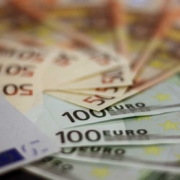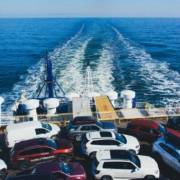Middle-East changes
It seems almost unlikely even beyond imagination, but the changes in the middle-east follow eachother at a high pace. As the middle-east has been a certain stable factor for years, in spite of the constant dictatorial repression, this superficial ease has came to a brute end. It could be a change for the better, but the outcome is more uncertain then ever.
The cry of the middle-east population in the various countries for more freedom and democracy can only be supported. The dictatorial regimes had too much time in repressing there people with as a result great poverty, violation of human rights and a poor and fragile stability which was of great concern to the western world.
At short term the local economies suffer greatly from the uproar. In some cases the local economy has come to a full stop. This does not only affect the domestic companies. Also global operating companies endure the consequences. However, this may not be a reason to turn down the legitimate demand of the local population for freedom and democracy. The support Israel gave to Mubarak proves more to be a panic reaction then a well thought act.
Changes, especially radical ones, always lead to a certain unease among foreign parties. Carefully build relationships, although with repressors, prove no longer to be valuable. One fears the anti reaction of the local people as they see those relationships as a indirect support of there suppressors. Western governments and companies should indeed question there position in the last decades. It is a little bit to easy to state that ‘if I don’t do it, the competition will’. That only shows a limited vision of what markets can be. If you can only see as much as your competition, you will only achieve as much as the competition. Innovation is about exploring new markets and discover new approaches.
The current changes show that repression only last for a certain period of time. Every human being will at the end, strive for human dignity and freedom. It is more or less in our genes, no matter were you where born. It is that same hung for freedom that drives our western economies. The freedom to make our own choices, as well from a social as economic point of view. Countries under repressive never showed a longterm stable economic development. The most of these repressive countries leaned heavily on foreign support. As many middle-east countries lean heavily on our oil addiction and on our perceived strategic interests.
With the fast changes the world can only profit. Free and democratic societies are more stable from economic and social point of view. For business trading becomes often quite easier and the markets are more transparent and penetrable. Cooperation with local partners proves more profitable.
Although the present situation feels uncomfortable and frightening, in the long run we can all benefit from this development. Which is the best reason to support the cry of the local population for freedom and democracy. Although the way these countries will shape and form will never be exactly as ours. As long as basic human rights and [legal] institutions are guaranteed, a renewed position can help the middle-east to play an important role on the world stage. A better one then before. But it is important that the western government and companies say farewell to the old middle-east and distance themselves from the repressive regimes. That will strengthen the struggle of the local people to regain there freedom they so well deserve.






